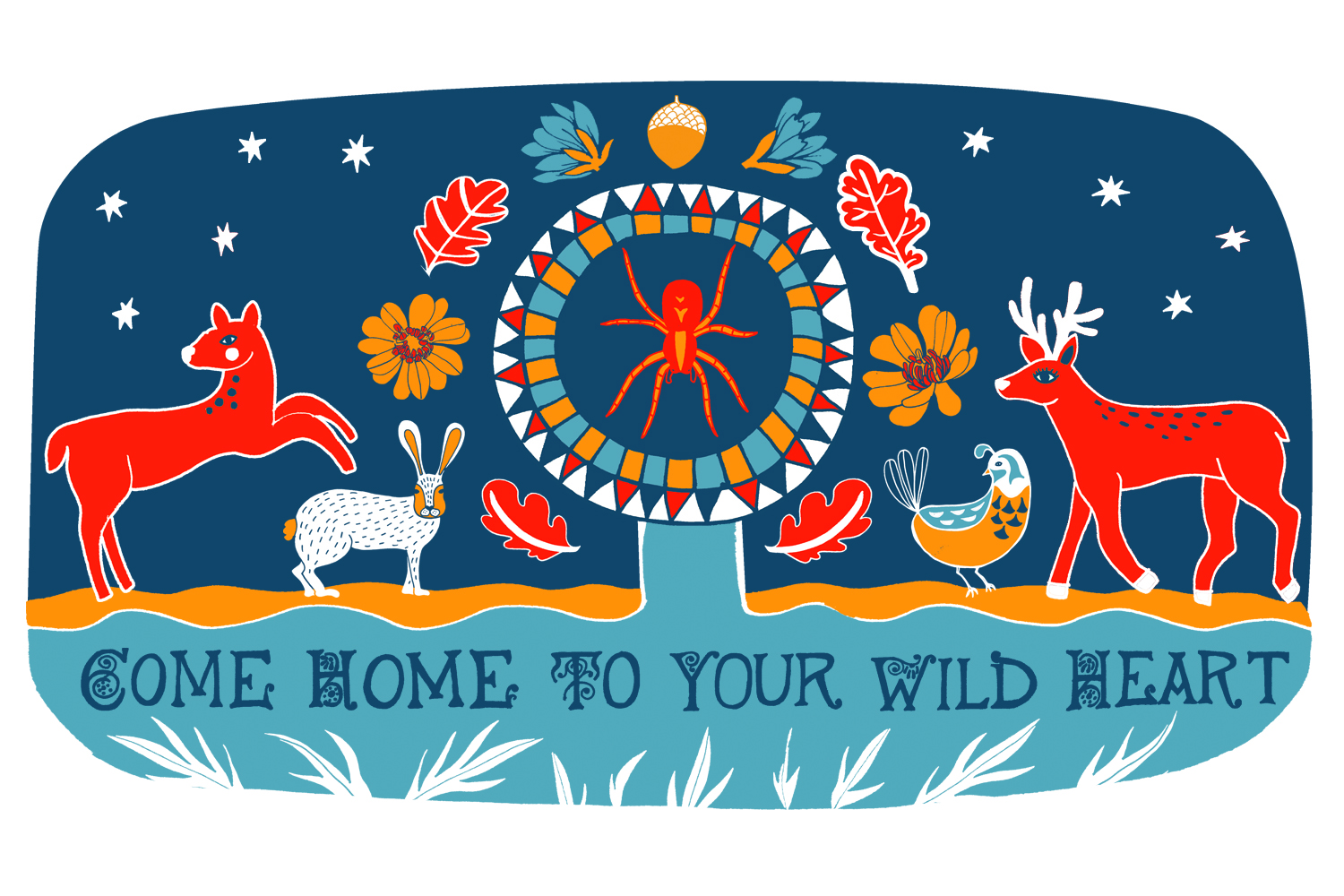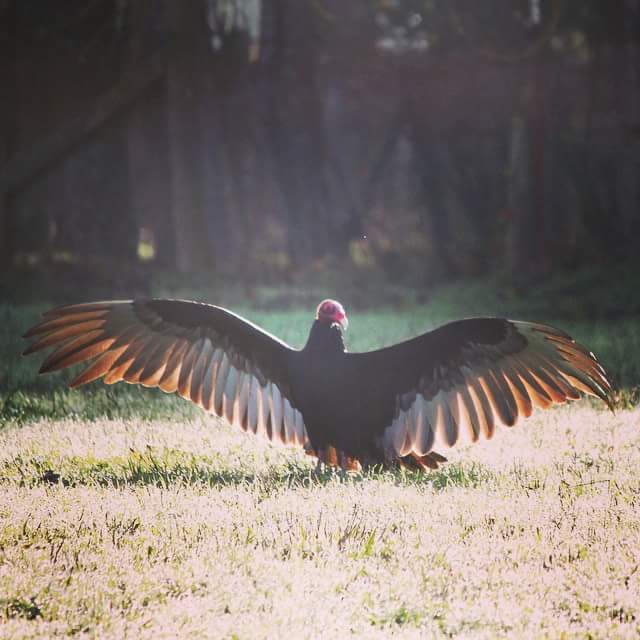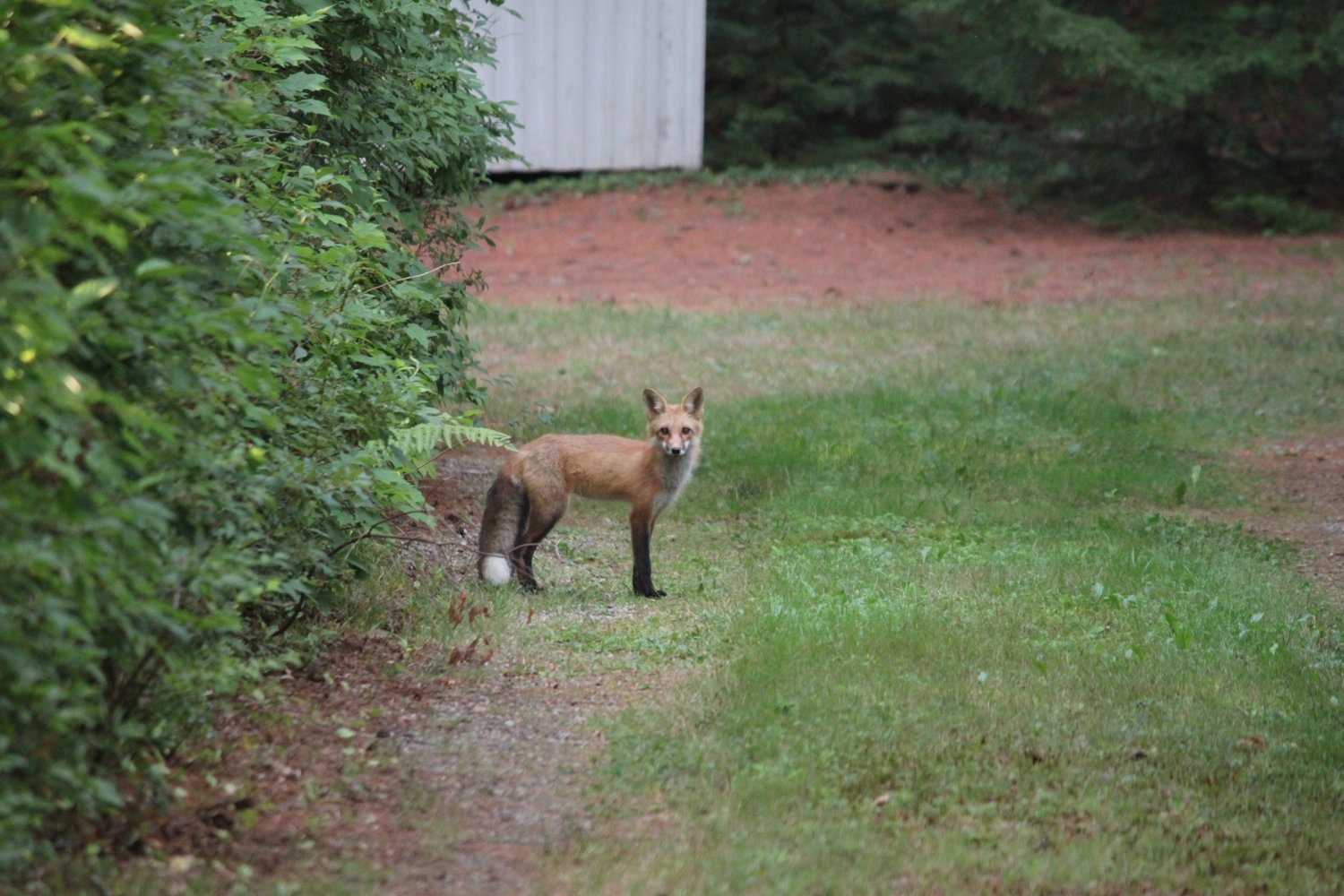Taking the Auspices
This was originally published in January of 2017.
For weeks it had been raining, the ground saturated and the water unable to sink in, not dissimilar to the news that Trump was about to be sworn in as #45. The drought in Northern California, after five years of desiccating dryness, was finally over. Winter still skulked around in full stride, yet even on the coldest mornings the coming warmth of spring could be discerned. The grass was growing just a little bit faster, the robins and bluebirds had returned, skunks flashed their white stripes under a Cancer moon and of course, there were the crows.
They had been trying to get our attention for several days before we finally woke up enough out of our anthropocentric self absorption to realize it. Whenever we went outside, there they were, loud and insistent. Like all animals who interact with humans on purpose, they have endless patience for how thick headed we can be, and if necessary will go to great lengths to get their message across. In this case, it took them circling the house and landing on the fence just outside the kitchen window, where they would peer in with a pointed intention and then swoop around again. Finally it dawned on me. I stuck my head out the window and asked, "Have you come back for peanuts?". To which they responded by settling in the nearest tree with quiet satisfaction. For the past two years in the early spring, I have fed a flock of crows a daily serving of peanuts, in a desire to satiate all being's need for tasty snacks, and also to deter them from going after baby bluebirds. They leave in the summer and fall, and because I had always offered without being asked, I had no idea that they actually would ask. Back in our routine of Mornings at the Peanut Diner, the incessant cawing has stopped and so the season begins to turn.
Engaging in conversation with the intelligence of the land is my vital practice, born of love and connection that breeds commitment. I walk my watershed to learn every bit of news, to witness the smallest of shifts and tiniest of delights. I do it also to temper the outrage that feels like a punch in the gut. It is hard to blow on the tinder bundle of fierce joy and dedication with the wind knocked out of you by the specter of hate, racism and misogyny. I walk, to learn a different kind of news, so that along with things like Grab ‘Em By The Pussy and Let’s Build The Wall, I am also being kept abreast of what emerges from under the decaying leaves of autumn's carpet, of how high the lambs can jump today and if I'm lucky, to catch a glimpse of, as The Talmud says, an angel bending over a blade of grass whispering "grow, grow". I know it is not enough, not in such fragile and dangerous times, and the juxtaposition of "This administration is lethal to all life on Earth" along with delighting in a circle of crumpley elf saddle mushrooms is not an easy marriage. Also, welcome to the new (not) normal
I'm taking "nature lover" out of my own personal vernacular and replacing it with things like The Human Animal at Home and Securely Attached with the Wild. I find the idea that one is, or is not, a nature lover, bizarre. As do I the notion that people who enjoy being outside or experience communion with plants and animals are either 1. Special or 2. Weird. I'd like to pose this question: If you don't consider yourself a nature lover, or if this seems like a foreign concept to you, isn't that interesting? You Are Nature. Our species evolved with, and has lived for most of it's existence in, intimate relationship with the untamed and unmolested entirety of creation. These artificial habitats that keep us in severed and separate enclosures, they are brand new on the scene,. But you my love...you are ancient, carrying the mystery of the fire lit circle of tribal companionship deep in your interdependent DNA. You belong here, you were made for this Earth and feeling at home is normal.
If you have lived most of your life kidnapped and in exile from this sense of home, this is also, unfortunately, normal. We are at this unprecedented intersection in the arc of the human species where we have never lived so far removed from balance and rhythm with terrestrial ecosystems and yet there has never been a greater need to come back home as strangers in a strange land. To take back up the mantle of garden caretakers. To relearn the choreography in the dance of life.
The morning of the inauguration, I pulled over to the curb, flagged down by a friend, a mother in my daughter's class. I thought she probably wanted to coordinate our plan to meet up at the Women's March, but instead what she asked was, "Did you see the fox?"
I hadn't. We take the back roads to school, and after drop off, I return by the small highway through town. It was on this highway that he lay, sprawled out across the entire lane, the traffic in both directions unfazed. Just as I guided my wheels to the side, the public radio station that was playing softly in the background announced our new president. I shut it off, and shut the door, as my friend pulled up behind me. I walked into the road, irrespective of the oncoming cars.
Naturalist Henry Beston (1928) calls animals "other nations” (p. 25), and I think it’s a perfect description for the shock I experience when I look into the eyes of a coyote, daring my flashlight in the dark, or pick up the oiled and flapping red-eyed Grebe on the beach or become hypnotized by the swaying neck of a giraffe at the SF Zoo. There is an invisible threshold that is met but not often crossed when we come back into contact with a wildness that is whole. It's not that this other being before me is somehow foreign or unknowable, but that there is an equally wild part of myself that leaps forth and says Yes and Me Too and I know You. An inherent and vital part whose emergence slaps us awake, out of the satiated and complacent nap of domesticity. It is in those moments that I know the place of the human animal, and I know how deeply and desperately I love all life, including my own.
I walked into the road, and I did not feel concerned, because what needed to be done was apparent to everyone who could see me, and the fact that it was not being done was suddenly appalling. The cars slowed down. Time slowed down. The fox was beautiful and gory, I wanted to look at it for the rest of my life and I couldn't bear to look another minute. I move roadkill all the time, so I knew it would be easy, yet every time is the hardest yet. I grasped the stocking feet in my hand, and slithered the fox and its organs across the lane and onto the grass near the edge of the swollen stream. I could feel the tension in the traffic rise as the fox's body sank with relief and was received by the ground. It was time for me to move along and quit interfering with the important business of important people doing their important things. Yet I still took a moment, and I let my heart fill with all my love, regret, rage and gratitude. I placed my hands in prayer in front of my chest, and bowed. Then I gave a thumbs up to my sweet friend, still in her role as a sacred witness, got back into my truck and returned to the fray.
What do I augur from a dead fox in the road? How do I talk about any of this in a way that is inclusive, that can draw in someone who is also of another nation, across the great divide? My neighbor and yet with politics and sensibilities foreign to my own heart? What is the way to prove an interconnection that is obvious to me but constantly denied by the greater culture?
I can begin to try by telling you about the vultures, the ones I saw later that morning when, emotionally blown out, I took to the fields for my daily walk. It was blustery, the rain clouds having drawn themselves up into puffy clusters as they reconfigured and strategized about the next downpour. Under the raised ceiling of the sky came the turkey vultures, pumping their wings once or twice to catch the updrafts, circling and wheeling around the blue grey together. There were seven or eight of them, and they returned every so often, passing above my head. Turkey Vultures are masters of patience, cooperation and faith. They can survive on very little, and they do not hunt. Instead, they wait for death to come to some other, and while eventually it always does, they cannot rely on the timing of a next meal. So they conserve by floating in circles, or letting the sun warm their wings in the morning rather than expending their own energy. They are entirely at the whim of the ebb and flow of life, reminders of the possibilities available in the transmutation of death into life.
Everything on Earth is food for something else, everything participates in the taking and giving of energy that involves the taking and giving of energy by something else. It's a truly ingenuous system that, when it runs uninterrupted like it did for millennia, works unfailingly. There has been a lot of effort by the human animal to step out of that reciprocal relationship, whether by creating synthetic materials that we can utilize but nothing else can (like plastics that are not biodegradable) or by growing food for ourselves in a way that ensures we are the only ones invited to the feast. Our conventional agriculture, with its use of synthetic fertilizers, starves the microbiome in the soil. Pesticides poison and kill organisms that are food for bigger animals.
This endeavor of separation has been a laudable experiment, one that was worth trying, for the promise of comfort and convenience. However, we are now at the end of that experiment, and have taxed our inherited and common resources to the core. The old way is dying, the dream of exponential capitalistic growth has reached the horizon and plummeted off the cliff. It is time to take sustenance from what is ending and compost the rest, finding the updraft in search of the new way forward.
I could blame the lack of wildlife corridors for the fox in the road. I can blame people for their habitat disruption that makes it possible for mesopredators (a mid-sized animal that both predates and is predated upon) to thrive in such numbers that they have to go to farther extremes to survive. I could blame the hunters in the 1800s who brought the European Red Fox to California for shooting sport. Pointing the finger, it also lands on our haste and waste, our addiction to fossil fuels, our human centric short sightedness that does not lend credence to the other lives that share this Earth with us. My finger can wag at the NeoCons, at the racists and bigots, at the dudes who "roll coal" on our backroads. Sometimes I do. I rage, weep and feast on righteousness. Then I find nuance, my own complicity and come back down to this mess. This Mess that we all are in.
There was a counter protestor at the Women's March in Santa Rosa. Solitary, he stood silently against a wall holding a sign that read, "White male. I voted for Trump. Pro Family.". I started to walk towards him, throwing the words, "I'm going to say hi" back over my shoulder, to the confusion of my friends. Someone else got there before me, started berating him about his sign, just what did he mean anyway? My group was moving on with the current of the crowd. I gently touched his arm to get his attention. He turned his eyes to me, cold, bemused, defensive. I said, "I just wanted to say hi. I see you here and you are part of our community.". Flustered, he scoffed back to me, and the person harassing him, "Thanks for saying that. Yep, this is about the first amendment..." and then I was running to catch up with my friends.
The dramatic appearance of the dead fox just as Trump was sworn in as President makes for a bad omen, and if I was an Etruscan Augur, looking for messages from the divine, I would take it as such. But instead, I'm taking the auspices that we are all in this together. That things are a fucking mess, interwoven and tangled, dropped stitches and holes and mislaid directions and conflicting patterns. That you, and I, the dead fox in the road, the vultures in the sky, the marchers in the street and the trolls on the internet (including the one in the White House), we are all part of this. All of us are complicit. It is painful and confusing, our communication highways are filled with potholes and land mines, the times seem full of peril. Taking it all as is, I am freed from flailing around to actually divining where struggle and resistance can bear forward motion through the dark.
The next day the fox was gone, dragged off in the night to be someone's meal, eventually to be returned to the soil microbiome, supporting new life. I read the signs of natural phenomena and augur that with death comes rebirth, that breakdown leads to the chaos of compost, that from the ashes, arises the phoenix.
Reference:
Beston, Henry (1928). The Outermost House: A year of life on the great beach of Cape Cod. Doubleday. New York.





